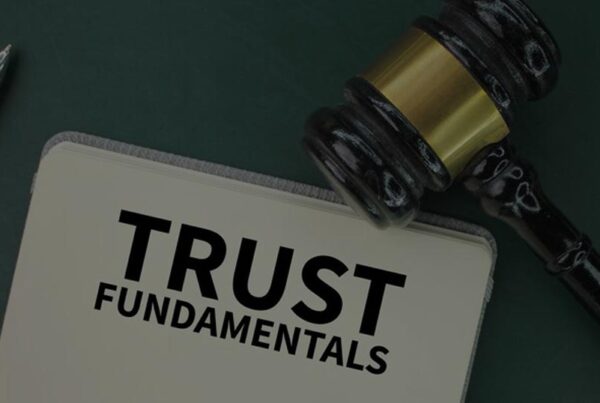WHITE COLLAR CRIMES
Benjamin Franklin famously said that only two things are certain in life: death and taxes. Whether we like it or not, paying taxes is something that everyone must do. But even when we try our best to pay our fair share, there are many ways to run afoul of the IRS.
If you, a family member, or loved one has come under investigation for tax fraud, you need a skilled criminal tax attorney to help you understand the charges and formulate a defense.
Sami Azhari of Federal Criminal Lawyer has helped countless clients just like you fight tax fraud charges. Sami’s knowledge of tax law and experience with IRS investigations makes him the ideal criminal tax lawyer to assist you in the fight.
Today we’ll discuss what constitutes tax fraud, its different forms, the applicable laws and penalties , as well as possible defenses.
What is Tax Fraud?
Tax fraud is defined as the intentional falsification of information on a tax return, with the goal of minimizing or eliminating an individual or organization’s tax liability.
It is legally defined under sections 26 U.S.C. §§7201, 7203, 7206 and 7207 of the U.S. tax code:
- §7201 – Makes it a crime to knowingly take action to avoid paying taxes.
- §7203 – Criminalizes an intentional failure to file a federal tax return.
- §7206 – Prohibits false statements on tax returns.
- §7207 – Criminalizes willful delivery or disclosure of any list, return, account, statement, or other document that is known to be fraudulent or false as to any material matter that could hinder the IRS’s ability to determine tax liability.
Some common methods of tax fraud include falsely claiming dependents, using a false Social Security number, and claiming personal expenses as business expenses. Essentially any act that involves lying or cheating on a tax return can be classified as tax fraud.
Tax fraud can be committed by both individuals and organizations, but in order to be convicted of tax fraud, the government must prove beyond a reasonable doubt that an alleged offender willfully attempted to evade paying taxes.
While the IRS is certainly strict, they do differentiate between overt dishonesty and simple mistakes.
That means the help of an experienced tax fraud attorney is invaluable in helping you understand the charges you are facing and your options for defense.
Tax Fraud vs. Tax Evasion
Tax evasion is a common form of tax fraud. While many use the two terms interchangeably, they constitute related yet different crimes.
Tax evasion occurs when an individual or organization underreports their full income to the IRS. An example of tax evasion would be failing to file a tax return at all when a tax burden is owed. Tax evasion can also occur when tax deductions are over estimated.
Both tax fraud and tax evasion are serious crimes. If you’re being investigated for either of these crimes, you need the help of a criminal tax attorney right away.
Tax Evasion vs. Tax Avoidance
Both tax fraud and tax evasion are illegal methods of minimizing or evading a tax debt, but what about tax avoidance?
Tax avoidance is actually a legal tax strategy that many use to minimize their tax burden – but there is often a fine line between tax evasion and tax avoidance.
Tax avoidance relies on legal strategies to minimize a tax debt. These can be things like taking advantage of available tax credits, strategically making charitable donations, and choosing tax efficient business structures.
All of these strategies are legal because they work within the confines of the tax system. It’s only when people try to falsify information about their income or tax obligations that they run into trouble.
If you’re unsure if a practice constitutes tax fraud or tax avoidance, consult with a specialized lawyer for tax fraud or federal tax attorney.
Common Forms of Tax Fraud and Tax Evasion
There are many different types of tax fraud that are likely to draw the attention of the IRS. However the most important distinction is that tax fraud and tax evasion are deliberate choices made to avoid paying taxes.
If the IRS determines that any of these actions were the result of a deliberate decision, and not simple negligence, they will be likely to pursue investigation – and gain a conviction.
Some of the most commonly prosecuted forms of tax fraud include:
Failure to File a Tax Return
A frequent form of tax fraud involves purposefully failing to submit a tax return. If the tax return was not filed simply to avoid paying taxes, it is considered tax fraud.
Deliberate Omission of Earnings
When a taxpayer deliberately omits earnings from their tax return, for example earnings from a side hustle like ride share driving, they commit a form of tax fraud.
Underpaying or Failing to Pay Taxes
Likewise, paying less than is owed or simply not paying taxes at all constitutes tax fraud.
Filing False Tax Returns
If a person uses someone else’s social security number to file a tax return and claim a refund, it is a form of tax fraud. A false tax return may also include one where improper deductions were claimed.
Employment/Payroll Tax Fraud
When businesses underreport their workforce numbers, pay employees under the table, or fail to collect and pay payroll taxes to the IRS, they have committed tax fraud. A lawyer specializing in payroll tax fraud is often needed to defend them.
Penalties for Tax Fraud
Regardless of the specifics of the offense, the willful avoidance of paying taxes is an extremely serious crime. Most forms of tax evasion can result in felony charges, but a tax evasion lawyer can often help you achieve a favorable outcome.
Conviction Under §7201
A conviction under §7201 is considered a felony. The penalties include as much as five years in prison. Violators can also face fines as high as $100,000 per incidence for an individual, and up to $500,000 for a corporate entity.
Conviction Under §7203
The penalty for a conviction of tax evasion under §7203 for failing to file a tax return is considered a misdemeanor. However, it can still carry a prison sentence of up to 1 year, as well as a potential fine of up to $25,000 for individuals and $100,000 for corporations.
Conviction Under §7206
Making false statements on a tax return is a violation of §7206 and is considered a felony. Penalties can result in up to three years in prison, and fines up to $100,000 for individuals and $500,000 for corporate entities.
Conviction Under §7207
Knowingly delivering or disclosing a document that is known to be false is typically considered a misdemeanor. It carries a potential prison sentence of one year, and fines of up to $10,000 for individuals and $50,000 for corporations.
5 Potential Defenses a Tax Evasion Lawyer Can Use to Help Your Case
If you are facing charges of tax fraud, tax evasion, or other tax related charges, you need to retain the help of a seasoned tax evasion lawyer as soon as possible.
A tax evasion lawyer or tax fraud attorney will be able to review the specifics of your case and help you devise a strategy for your defense. Some potential defenses included:
- Lack of Intent – We noted earlier that the IRS in many cases is willing to accept that sometimes mistakes are made when filing taxes. A skilled criminal tax attorney may be able to show that you made an honest mistake and did not intend on breaking the law.
- Lack of Evidence – For a successful conviction, a federal tax attorney must be able to prove beyond a reasonable doubt that you have intentionally sought to avoid paying fair taxes. Your tax evasion lawyer can challenge the prosecution’s evidence and help you beat the charges.
- Statute of Limitations – The IRS must bring charges of tax fraud within six years of the date of the alleged offense. If it has been longer than six years, your lawyer for tax fraud may argue that the statute of limitations has expired and that you can no longer be charged for this offense.
- Good Faith – If you relied on a tax professional to prepare your taxes, or made efforts to correct errors, you may be able to argue that you acted in good faith, and had no intention of breaking the law.
- Procedural Errors – Experienced criminal tax attorneys may be able to prove grounds for dismissal if a procedural error has occurred. This can be argued if evidence was gathered without a search warrant, or if the IRS failed to follow any other official procedure at any point during the investigation or judicial process.
Looking for a Criminal Tax Attorney Near You?
Remember, the burden of proof in tax fraud cases relies on the prosecution. They must be able to prove beyond all reasonable doubt that you intentionally attempted to avoid paying taxes, or that you falsified any information on your tax return.
Honest mistakes do happen, and sometimes people get careless when filing taxes. If the prosecution cannot definitively prove that you intended to commit a crime, you may have a solid defense.
If you are facing charges of tax fraud or tax evasion, you need the help of a skilled criminal tax attorney to withstand the charges. The more experienced your tax evasion lawyer, the better chances you’ll have of beating the charges.
With over 17 years of experience as a tax evasion lawyer,Sami Azhari of Federal Criminal Lawyer has the skill and knowledge to defend you against the IRS’s federal tax attorneys.
Sami has developed a reputation for tenaciously and vigorously defending his clients against a variety of white collar crimes including tax fraud and tax evasion.
Don’t spend another moment waiting to find the right tax fraud attorney. Contact Sami at Federal Criminal Lawyer today and let him fight diligently for you on your day in court.
White Collar Crimes
Recent Posts






